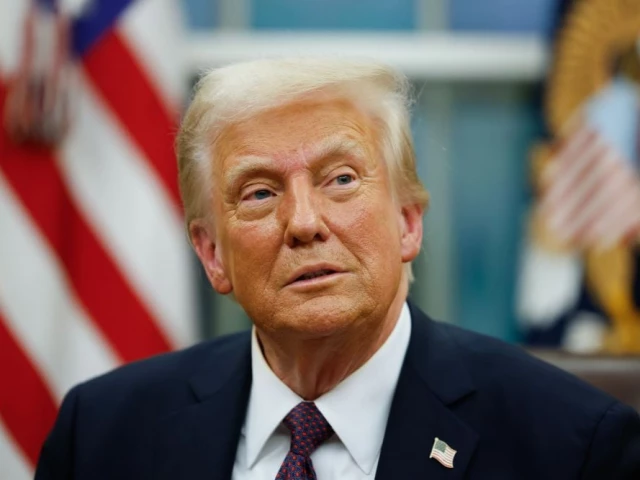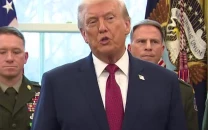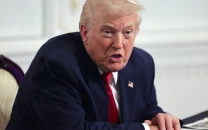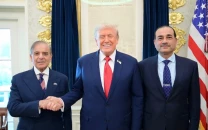Trump admin seeks Supreme Court intervention after tariff ruling defeat
Trade court rules Trump misused emergency powers law to justify broad tariffs on China, Canada, Mexico, and the EU

The Trump administration has vowed to take its battle over tariffs to the US Supreme Court, following a series of legal defeats that have dealt a blow to the former president’s economic agenda.
On Thursday, lawyers representing the White House filed an emergency appeal asking the Court of Appeals for the Federal Circuit to halt a ruling that overturned a number of import taxes introduced under President Donald Trump. Should the court decline, officials said they will seek immediate intervention from the Supreme Court.
The legal manoeuvres come amid mounting judicial scrutiny of Trump’s use of sweeping tariff powers. A second court has now found the former president exceeded his authority in imposing duties on a wide range of foreign goods—a decision hailed as a victory for small businesses and state governments that brought the challenges.
In a strongly worded filing, the administration accused the courts of overstepping their bounds: “The political branches, not courts, make foreign policy and chart economic policy,” it said, warning of “irreparable national-security and economic harms” if the decision is allowed to stand.
The latest ruling came from a lower trade court that found Trump’s measures, issued under the International Emergency Economic Powers Act (IEEPA), were not within the legal bounds of the presidency. The law, traditionally reserved for sanctions against hostile states such as Iran, was used by Trump to justify sweeping tariffs on goods from countries including China, Canada, Mexico, and EU member states.
Critics argue the legislation was never intended to grant such wide-ranging control over trade and tax policy—areas historically overseen by Congress.
Trump, who returned to office in January, has repeatedly pushed the boundaries of presidential power. His administration argues that the tariffs were needed to address national security and combat the fentanyl crisis. In February, he ordered levies on imports from key trading partners, followed by a blanket 10% tariff on most global imports in March, singling out countries labelled “bad actors”.
Some of those orders have since been suspended, but businesses remain wary. Kara Dyer, owner of Boston-based Story Time Toys, which imports toys from China, described the process as “chaotic”.
“I was incredibly happy and relieved [by the ruling], but I’m also still very cautious,” she said. “It’s just been so impossible to plan as a business.”
Legal analysts say the rulings could curb Trump’s ability to unilaterally impose new tariffs in future. Dmitry Grozoubinski, a former trade negotiator for Australia at the World Trade Organization, said the decision could weaken Trump’s leverage on the international stage.
“This was ultimately a negotiation in which President Trump was threatening other countries with a big stick—and that stick just got considerably more ephemeral,” he said.
Despite the rulings, some experts believe higher courts may still side with the executive branch. Terry Haines, of consultancy firm Pangaea Policy, said: “These things will be litigated through, and the president is probably going to be given the benefit of the doubt.”
The fate of Trump’s tariff strategy now rests with the higher courts, but the legal battle has already reignited debate over the limits of presidential power and the proper role of Congress in shaping US trade policy.




















COMMENTS
Comments are moderated and generally will be posted if they are on-topic and not abusive.
For more information, please see our Comments FAQ